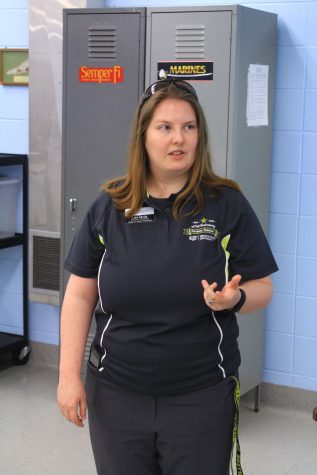Bardo’s ambitious dorm project takes shape
Next year will be a year of celebration at Wichita State because the Rhatigan Student Center and the new dormitory, which will begin construction before the middle of the summer, will be completed.
That is 2014.
“We have a tentative schedule outlined and if every domino falls in line, the [dormitory] construction will begin late spring or early summer,” Ted Ayres, Vice President and General Counsel for Wichita State, said.
The construction sites all point to the parking lot north of Morrison Hall and south of the Cessna Stadium, making way for the new dormitory, part of WSU President John Bardo’s vision of increasing student enrollment from about 15,000 students to 25,000 students.
Last semester the north side of the same parking lot was blocked off. Ayres explained it was paving the way for the construction of the new dormitory.
“They were boring to see what the quality of the soil was like under the parking lot and do see if there were any water issues,” he said.
With less than two years to build a new state-of-the-art dormitory with capacity of about 700 students, including a dining facility, meeting rooms and honors college rooms, the contracts have already been signed with private collegiate housing developer Education Realty Trust (EDR) Firm out of Memphis, Tenn. The Kansas Board of Regents is to consider the final plans on Feb. 8.
EDR focuses on building residential housing for universities and colleges, Ayres said. EDR has coordinated to work with local construction companies, Dondlinger & Sons Construction (RSC’s construction company) and Farha Construction Co, along with local architect David White, a partner with Howard + Helmer Architecture.
“EDR has done a nice job of being in their national expertise but also using local folks we are familiar with to build a team that will lead to something of which we will be proud,” he said.
Last year Bardo said that WSU needed updating and modernization and Ayres said that is exactly what this new dormitory will be: state of the art.
“I’m not sure that students are aware that the plan is both for a residence hall and dining hall. We will significantly expand food options on campus for students with this project,” Bardo said.
WSU has 330 acres with which to work, and with a master planner helping them see what the school will like in 15-25 years, the best location for the dorm at this moment appears to be in a parking lot, making the question of lack of parking spaces arise.
Sophomore Lindsey Gallagher said that as long as Perimeter Road is not restricted, parking elsewhere will supplement those spaces being lost, and she had no issue with another construction site.
“We will be building a new parking lot where the current recreation field is located. The recreation field will be moved to the Metropolitan Complex,” Bardo said.
“There will not be substantial parking next to the building. There will be drop off areas but students who live in the hall will park away from the hall. Because of its location, the hall will be convenient to all areas of campus, so students should expect to walk rather than use their cars,” he said.
Depending on various costs including those of the contraction, a rough estimate for this new project will be anywhere from $40 million to $70 million, with many hoping it stays below $50 million with a projected payoff in 30-40 years.
The parking lot, which is state property, will be leased either to the WSU Foundation, the Union Corporation separation entities or a national company, which will issue tax exempt bonds and will be the ones who contracting with the developers. The company with the lease will then contract back with WSU allowing it to manage the facility, which then will ask Housing and Residence Life to be responsible for it. This is all part of the fast track, which allows the new dormitory to be completed within two years without working through the state regulations that usually require more time.
With the costs, student fees are not likely to increase, but housing contract costs would be a topic for discussion. Bardo and Ayres said the housing residents would be the ones paying for the residence halls.










